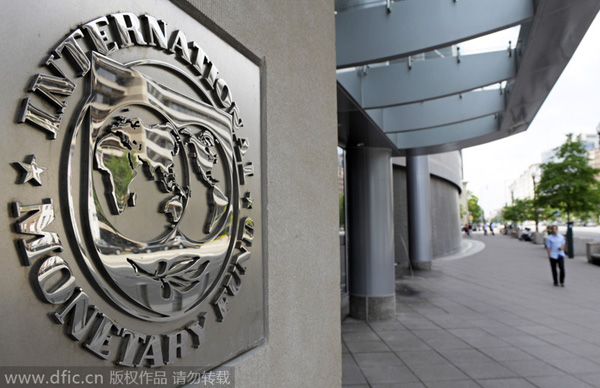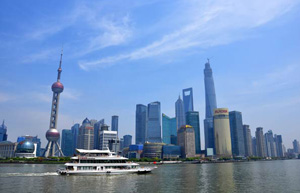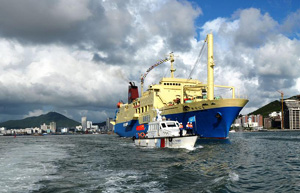 |
|
Pedestrians walk past the International Monetary Fund headquarters' complex in Washington on May 2, 2010. [Photo/IC] |
The International Monetary Fund was launched in 1944 with the world's new superpower, the United States, in position as the key force and shareholder in the global crisis bank.
Today, China is on the verge of becoming the world's largest economy.
But its voice at the IMF-wrapping up its annual meeting this weekend in Washington-remains that of a minor country, and some worry this could undermine the crucial, 70-year-old institution.
The IMF estimates that by the end of this year, China's economy will surpass the US in size: $17.6 trillion versus $17.4 trillion, if based on purchasing power parity-which takes into account different currencies and standards of living.
On a more traditional basis of measurement, the clearly much more affluent United States still leads by a wide margin.
But there is no debate about China's rise to power in the industrial world. And its growth rate, at about 7.5 percent this year, still far outpaces those of the rest of the advanced economies.
The IMF has had difficulty conforming to this new global power balance. The US holds 16.7 percent of the voting power in the fund, which gives it an effective veto over any major changes in its structure and activities.
China meanwhile has a 3.8 percent voting share, not far from Italy's, which has an economy one-fifth the size.
And the US Congress' repeated refusal to ratify a 4-year-old set of reforms that would boost China, India and other emerging powers at the institution is beginning to cut into the fund's stature.
"The risk for the IMF is that it will become less and less relevant and increasingly illegitimate," said Paulo Nogueira Batista, the IMF representative for Brazil and 10 other countries, speaking on his own behalf.
The 2010 reforms would change quotas, effectively their voting power, for shareholders and also sharply increase the IMF's overall financial resources, crucial for conducting huge operations like the rescue of Greece and Ireland and, most recently, support for Ukraine.
The administration of President Barack Obama has endorsed them from the beginning, but repeatedly has been unable to persuade Congress to ratify the pact.
Clearly frustrated, IMF Managing Director Christine Lagarde said Thursday that she would perform a belly dance in front of the US Congress if they were to ratify the reforms.
"It was due in 2012. It is overdue in 2014," she said.
|
 |
 |
| ?Less but better growth for China: IMF chief economist | ?China to become biggest economy by year-end |
